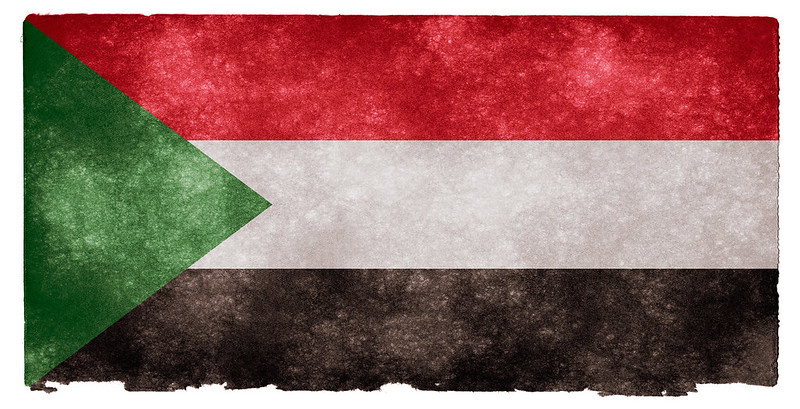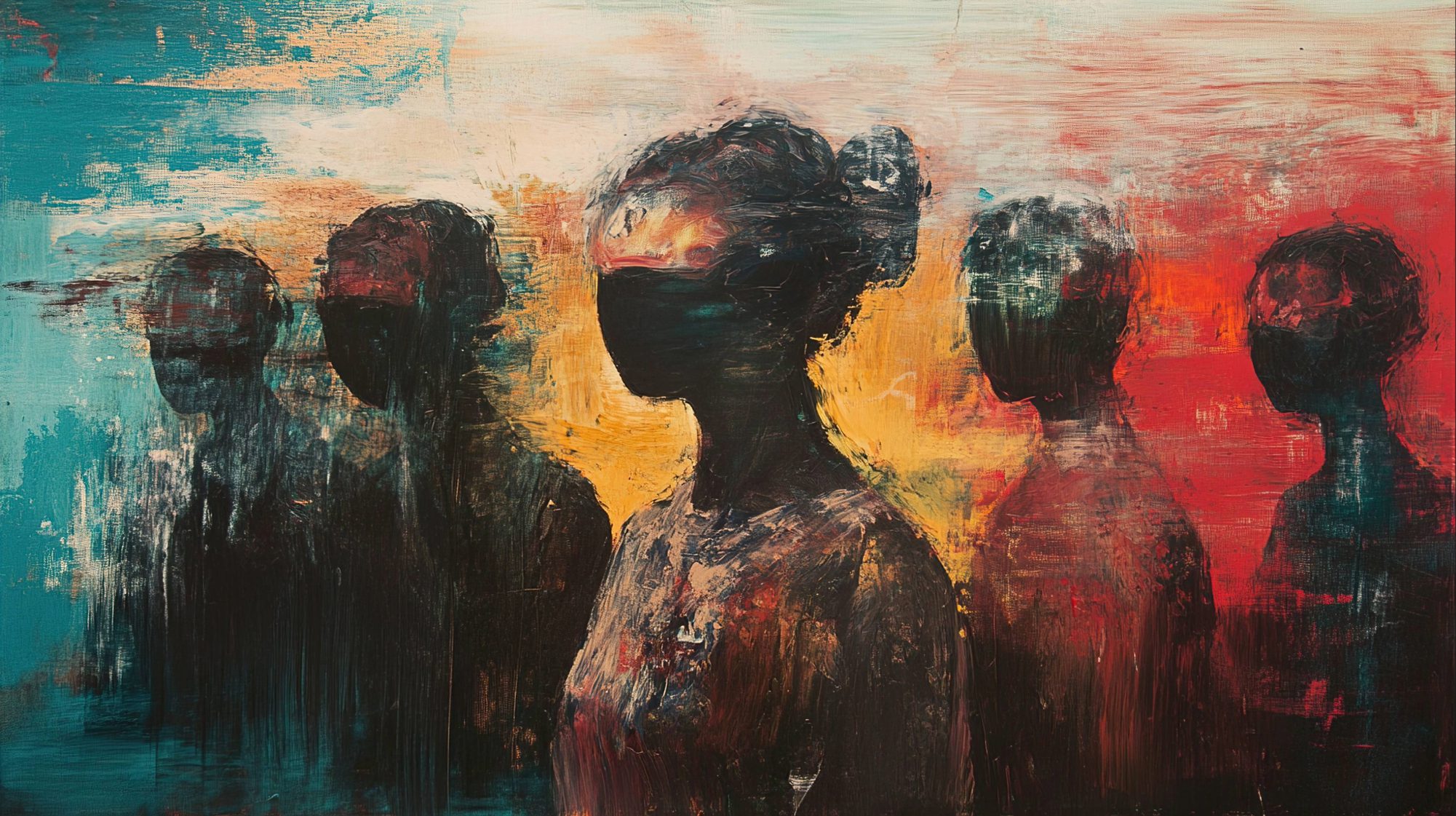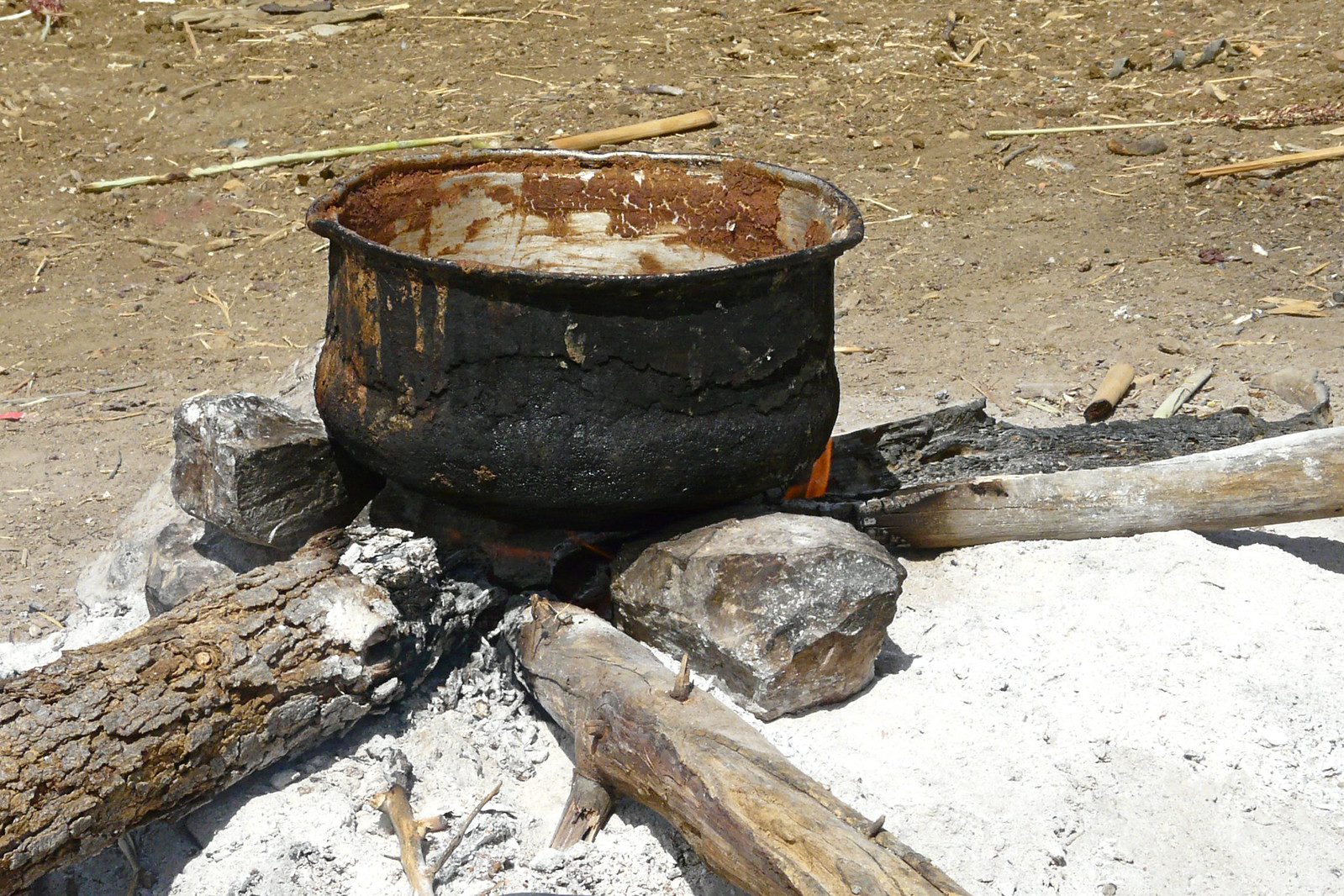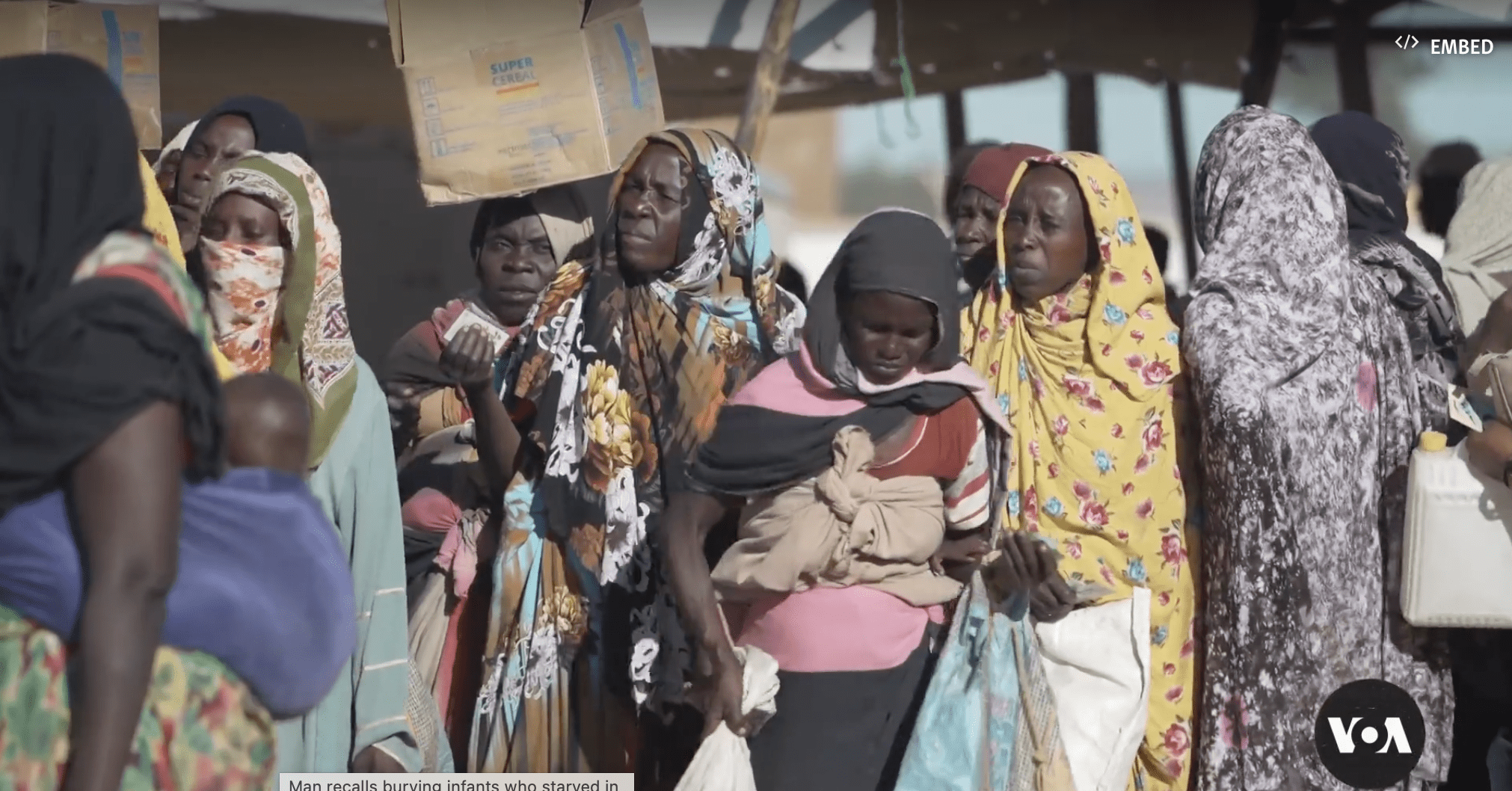Sudan’s war-makers refuse to learn from history. Time and again they seem to believe, despite every piece of evidence from the country’s sorry history of conflict and destruction, that using force will solve their problems. I have listened to Sudanese generals, politicians and rebel commanders, explaining why war is unavoidable, or necessary, or even desirable. Sometimes with bravado or anger, but most often with dead eyes and a weary voice, as though they were surrendering to an unstoppable force out of their control.
I have been in Sudanese towns at times when people know that the generals have decided to go to war. The atmosphere is thick with fear. I have heard the dread in people’s voices, seen it in their faces, observed it on the streets and in the shops. For ordinary people, the approach of war is like a dust storm, a force they cannot stop.
For the generals, starting a war is a choice. Their fatalism is a mask. And just as they started the killing and pillage, they can order it to stop. But they rarely do.
Time and time again Sudanese generals say they can win a decisive victory. They win battles but they never win wars. If they think they have the upper hand, they press on; if they have suffered a setback they insist on evening the score. They never know when to stop.
Don’t pay attention to claims and counter-claims of who controls what and the chance that one may land a killer blow on the other. No-one should try to identify a ‘winner’ and back him.
At least during the first few days of fighting when their forces are unified and command and control are clear. But then, like an aggressive cancer, war will metastasize and truly become unstoppable.
Sudan needs coordinated heavyweight diplomatic engagement if it is to avoid this abyss.
The New War is Different but also Familiar
This blog post gives an overview of current dynamics in Sudan using the framework of the political marketplace. Governance as rivalrous military kleptocracy has reached its culmination with the two strongmen fighting to the death in Khartoum. Neither can win in any meaningful sense. The logic of the political marketplace leads Sudan towards ungovernability.
It’s not clear who fired the first shot on Saturday morning and whether it was an unintended spark that escalated or a deliberate action by one or the other, such as a pre-emptive strike. Either way, hotheads on both sides were spoiling for a fight, beguiled by the illusion of a knockout blow.
The civilians and the democratic forces are spectators and victims.
The two warring parties are asymmetric but each has the capacity for sustaining a long war. The Sudan Armed Forces (SAF) can put on an impressive display for a short period but in all previous wars they have relied on militias and proxies to do most of the real fighting. What the Rapid Support Forces (RSF) lack in aircraft and tanks they make up for in mobility, demonstrated tactical effectiveness, and territorial spread.
The conflict is rooted in the political economy of a failed transition that did not give the civilian administration the tools to deal with the country’s economic crisis and dismantle the military-commercial complex. It is unfolding consistently with the logic of a political marketplace characterized by diminishing political funds, a rivalrous oligopoly.
The Warlords
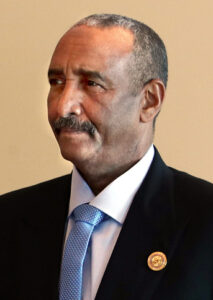
Lt. Gen. Abdel Fattah al-Burhan is a facsimile of a military ruler. He is chairman of the Sovereignty Council and will present himself (flatteringly) as the head of state. He commands the Sudan Armed Forces which is a plausible imitation of a professional army, but which is more impressive in its shows of hardware and its commercial dealings than its combat capacity.
Al-Burhan makes no secret that his role model is Egyptian President Abdel Fattah al-Sisi. He sees the military as the institution of sovereign power above the political sphere. This is his public justification for why the army should be in charge of its own security sector reform.
Lt. Gen Mohamed ‘Hemedti’ Dagolo Hamdan is an object lesson in political entrepreneurship by a specialist in violence. He leads the Rapid Support Forces (RSF). He is a self-made man, who rose from a humble background in a small Darfurian Arab tribe, because of his skillset. The RSF was formalized as a paramilitary under his command ten years ago, in recognition of its prowess in defeating insurgents in Darfur. The RSF is a battle-hardened militia which is tactically capable. It has fought in Yemen and has dealings with Russia’s Wagner Group. It has cut deals with former armed groups. Hemedti and his family control a commercial empire trading in gold and other commodities, which has diversified including into banking.
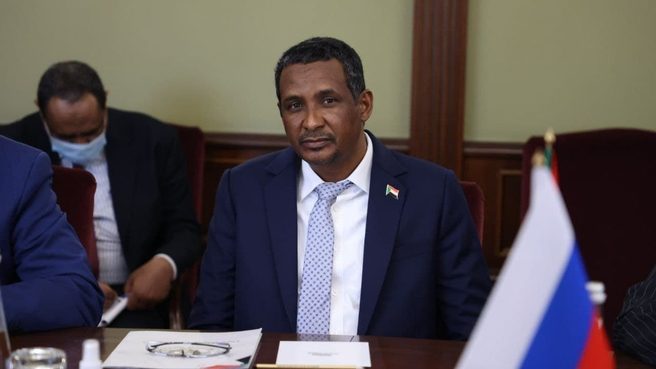
Hemedti presents himself as the protector of the revolution and a friend to the civilian revolutionaries. Some of the civilian leaders lean towards him because they see him as the only credible force that stands in the way of al-Burhan establishing a new dictatorship.
All other players are secondary. This includes the two blocs within the Forces of Freedom and Change (FFC) and the civilian groups that cling to the dream of a revolution that will sweep away the entire rotten deep state.
Applying the Political Marketplace Framework Toolkit
Sudan has long been a political marketplace in which political allegiances are traded. A rudimentary political marketplace analysis runs as follows.
First, it is a political bear market. The overall envelope of resources (both public finance and political budgets) is contracting. In these conditions, political negotiation is a minus-sum game: the struggle is for diminishing sources of political finance.
Second, the two rivals have different forms of political market enterprise and their strategies differ accordingly.
Al-Burhan is the inheritor of the centralized kleptocracy of the military-commercial complex and the National Congress Party. This is an oligarchic cluster with many different elements, which which he has to negotiate, but they have common interests vis-à-vis the alternative model (see below). Many Islamists who have retained their businesses or connections are aligned with them. Their political funds come from their crony capitalist businesses, including in the oil and telecoms sectors.
Al-Burhan would like to run Sudan as a centralized military kleptocracy. Hemedti is a trader in a political bazaar, who thrives in deal-making among fragmented groups. Hemedti has a family business empire centered upon the gold trade. Although these businesses aren’t as big as those within al-Burhan’s network, Hemedti has tighter control and has bigger discretional political spending.
Third, the price of loyalty has been trending downwards but the principals will struggle to pay. The general rule of political bear markets is that loyalty payments reduce more slowly than political budgets diminish. I.e., the rivals will be spending relatively more of their resources on getting subordinate military, commercial and political actors onside. In turn this intensifies their incentive for primitive accumulation, i.e. looting and extortion, along with making promises of future payouts to external patrons.
Fourth, the political marketplace has been organized as an unstable collusive oligopoly. Under Omer al-Bashir, Sudan’s political market was a collusive oligopoly, skillfully managed by the president. Since 2019 it has been an oligopoly in which the two principals (al-Burhan and Hemedti) alternate collusion and rivalry. They collude in the face of a common threat, e.g. a civilian government that will move seriously on the agenda of exposing their corrupt dealings and dismantle the military-commercial complex, a.k.a. the ‘deep state’. They then became bitter rivals over who controls the SSR/military integration process.
Fifth, violence destroys institutions and civic norms and allows the political marketplace to flourish. Sudan’s civic democrats are sheltering for their lives. Unless the conflict is rapidly ended, the dynamics will likely be towards a more fragmented, diffused and unregulated political market with low barriers to entry for violent entrepreneurs and tactical, transactional logics to alliance building.
Sixth: identity politics will enter the picture. The fight is for power but conflict entrepreneurs will mobilize ethnic constituencies, for their support, and against one another.
The Political Economy of a Failed Transition
On assuming power in August 2019, the technocratic-civilian administration headed by Prime Minister Abdalla Hamdok was faced with four main challenges:
One: Economic stabilization. This was essential (a) to halt the economic crisis and gain popular credibility and (b) to give the civilian-technocrats some clout vis-à-vis the military kleptocrats. Donor delay in lifting sanctions and providing debt relief killed Hamdok as a serious political actor.
Two: Security sector reform (SSR) which is a vast and complicated task that includes reducing the size (and huge cost) of the defense sector, integrating and professionalizing the armed forces, as well as dismantling the military-commercial complex. SSR was never under civilian authority. As soon as the civilians began serious efforts to expose the kleptocratic networks, the soldiers mounted a coup.
Three: Peace negotiations with armed groups. The FFC made the initial error of negotiating alone with the generals, not including the armed groups. Then, as the armed groups understood that the civilians had neither money nor control over the security sector they concluded the Juba Peace Agreement with the military, and joined the government on that basis.
Four: Building democratic institutions. Unless challenges one to three were addressed this was a futile exercise.
The civilian prime minister was like the cashier selling soap and matches in a corner store while the gang bosses made their drug deals in the back room. He was further hampered by the refusal of some of the civilians (i.e. the Sudan Communist Party and its fellow travellers) to engage in the political work of democratization, instead wanting to sweep away the old structures before embarking on political engagement.
After the October 2021 coup, Sudan’s modest financial lifeline was cut, deepening the spiral of crisis. The Tripartite mediation effort was focused on patching up a formula for power-sharing in the hope that the deeper issues could then be addressed in sequence. But the issue of SSR was inescapable. As the negotiations approached the deadline, the stakes were heightened. Optimistic messages from the mediators didn’t pay sufficient heed to the fact that the most dangerous moment in any peace process is the moment just before the signature—especially if the outstanding issue is about who controls the army.
Historical Echoes
Several intersecting historical and identity issues intersect in the current crisis, but none of the labels fits neatly. The conflict pits the ‘community of the state’—the political establishment that has dominated the institutions of government and the senior ranks of the Sudan Armed Forces—against upstarts from the peripheries. But the people of Khartoum and the Nile—the awlad al balad—are divided, and indeed the capital has become a melting pot for people of all classes, ethnicities and regions of origin. The divides cut across other political identifications. For example while most of the NCP Islamists align with al-Burhan, others sympathize with Hemedti.
The political establishment sees Hemedti and his fighters as vagabonds who may not even be Sudanese. The people of the periphery, and many within Greater Khartoum, see a state that has long defined itself as a hierarchy in which they have few rights or none at all.
The historical example that resonates is the rule of the Khalifa Abdullahi al Ta’aishi from 1885-98. The Khalifa brought his kinsmen from Darfur to Omdurman and ruled the riverain regions with an iron fist.
The divide is also akin to the historic antagonism between townspeople and Bedouins, in line with the writings of the 14th century Arab scholar Ibn Khaldun. In his classic book, Al-Mugaddima, Ibn Khaldun framed history as a cycle in which desert nomads, with raw energy (asabiya), overran the urban centers of civilization (hadhari). The charismatic leader would establish a dynasty, which within three generations would degenerate into decadence, ripe for overthrow by another onslaught from the frontier clans.
Anticipating How the Conflict May Unfold
Modern Sudanese history is a cycle of sowing the wind and reaping one whirlwind after another. Whenever the Sudanese government fights a war and gains the upper hand, it has the opportunity of halting operations and offering a political compromise. It doesn’t take this opportunity: it wants to gain complete victory which is always elusive.
The Sudanese army fought its war in southern Sudan by licensing proxies. At the end of the day the southern Sudanese voted to separate. The Sudanese army created militia to fight in Darfur and they won battles. The price of ‘victory’ was the destruction of Darfur’s multi-ethnic society, an ungovernable region, and a parallel military force that could challenge the army itself.
The conflict is currently a war between two readily-identifiable parties over state power. While it remains thus it has the best chance of a resolution through the standard format of a ceasefire and political dialogue. If the war continues it will become a two-level game in which the principals also bargain with their subordinates, clients and junior allies. In due course, as new military-political entrepreneurs enter the market it may become a ‘Hobbesian’ war of all against all.
At the moment the visible conflict is a series of battles for key locations. Conflict analysts must not succumb to the notion that tactical gains and losses will determine the outcome. Al-Burhan and the Sudanese Armed Forces have short-term advantages, but will probably overplay his hand, like his predecessors.
The less visible conflict is a contest over money in which each side will try to cut off the other’s funds, and secure additional resources for themselves. Control over political funds will be no less decisive than the battlefield. Al-Burhan will move against RSF commercial and financial assets. The SAF will want to take control of gold mines and smuggling routes. The RSF will want to interrupt major transport arteries including the road from Port Sudan to Khartoum.
Command and control may not stay unified for long. The material and organizational resources needed to sustain an intense war effort will be quickly depleted. The current phase may be sustained for some months, but will likely morph into a less intense but more widespread conflict with fragmented parties contending for control of different locations, many of them switching sides or acting opportunistically. Local rural militia will emerge. Urban resistance committees may take up arms.
Ethnic factors will likely emerge. Up to now, the divide is regional rather than ethnic, but this could change. Elements that could drive the shift include conflict fragmentation combined with ethnic massacre or displacement, and local ethnic alliance construction. There are already signs of flare-up in Darfur. We could see ethnic cleansing of neighborhoods in Khartoum and other cities.
Outside Entanglements
Unless it is swiftly ended, the conflict will become a multi-level game with regional and some international actors pursuing their interests, using money, arms supplies and possibly their own troops or proxies. Most of the same external parties that are fishing in troubled waters will be members of the mediation effort.
The two protagonists were running independent and parallel foreign policies which aligned with divergent outside interests in Sudan. Al-Burhan is closely aligned with Egypt and will, if he can, call on Egyptian military support. (It is unclear how the RSF capture of Egyptian troops in Meroe will influence Egyptian thinking.) Hemedti has close links with the UAE and an agreement with the Wagner Group. In both cases it is unclear how strategic are those linkages. Saudi Arabia tries to balance between the two and could potentially bring the UAE and Egypt to a common position, which would at least simplify the diplomatic traffic jam.
The Arab neighbors are much more influential than the African ones. The UN, AU and IGAD have played no political role. In June-July 2019 the AU and IGAD were the pen-holders for an agreement hammered out by the ‘quad’ of the US, UK, Saudi Arabia and the UAE. The fact that the AU and IGAD had drawn up the document that was signed allowed them to claim the credit and they appear to believe that their role was truly substantive. The ‘trilateral’ of the UN, AU and IGAD have (mis)managed the recent negotiations.
Eritrea relishes the disorder and will lean towards Hemedti. Ethiopia has enjoyed better relations with al-Burhan but will presumably make its calculation based on factors including the Eritrean position and the stance of Amhara region given its territorial dispute with Sudan.
Under the Trump Administration, the US delegated its policy on Sudan to Egypt, Israel, Saudi Arabia and the UAE—all of which agreed that they didn’t want to see a successful democratic revolution in Sudan. The Biden Administration has not succeeded in rolling back this modus operandi. Part of the Administration’s difficulty is that it has such a thick file of issues with each of these countries that Sudan is rarely a talking point on the agenda, giving these countries a free hand to pursue their own interests in Sudan. Another problem is that the State Department seems unable to focus on more than one Africa issue at a time.
Prospects for Mediation
The external mediators risk becoming a traffic jam with no policeman. They have interests, favorites and entanglements. They will struggle to adopt a shared analysis and approach beyond the minimum of calling for a ceasefire, and may spend more time wrangling among themselves than finding solutions to the conflict.
The mediators will face the dilemma of whether to focus on the two principals, for reasons of simplicity and speed, or to include others. Focusing on the generals risks consolidating the dominance of the armed kleptocrats. It would be the final betrayal of Sudan’s civic revolutionaries. It would leave little scope for addressing the challenge of SSR and uprooting the warlordism that is cannibalizing the Sudanese state. Inclusion of other armed groups creates the perverse incentive problem of encouraging fractures and new armed groups. Inclusion of civilians makes for a complex and slow-moving forum. But the diplomatic strategy of appeasement has produced nothing but calamity up to now.
The brutal reality is that the army and paramilitaries are swallowing up the Sudanese nation and have no intention of stopping. If the generals reflect on Sudanese history they will know that they will choke. But if they possessed an iota of awareness of the consequences of their actions they would not have crushed the civic revolution and started this needless and destructive war. The two warlords’ greed and cruelty are limitless. Unless they can be dissuaded within days, the prospects for peace in Sudan are slender and for democracy even more remote.
Photo: Flag of Sudan on vintage paper, Nicolas Raymond (CC BY 2.0)
